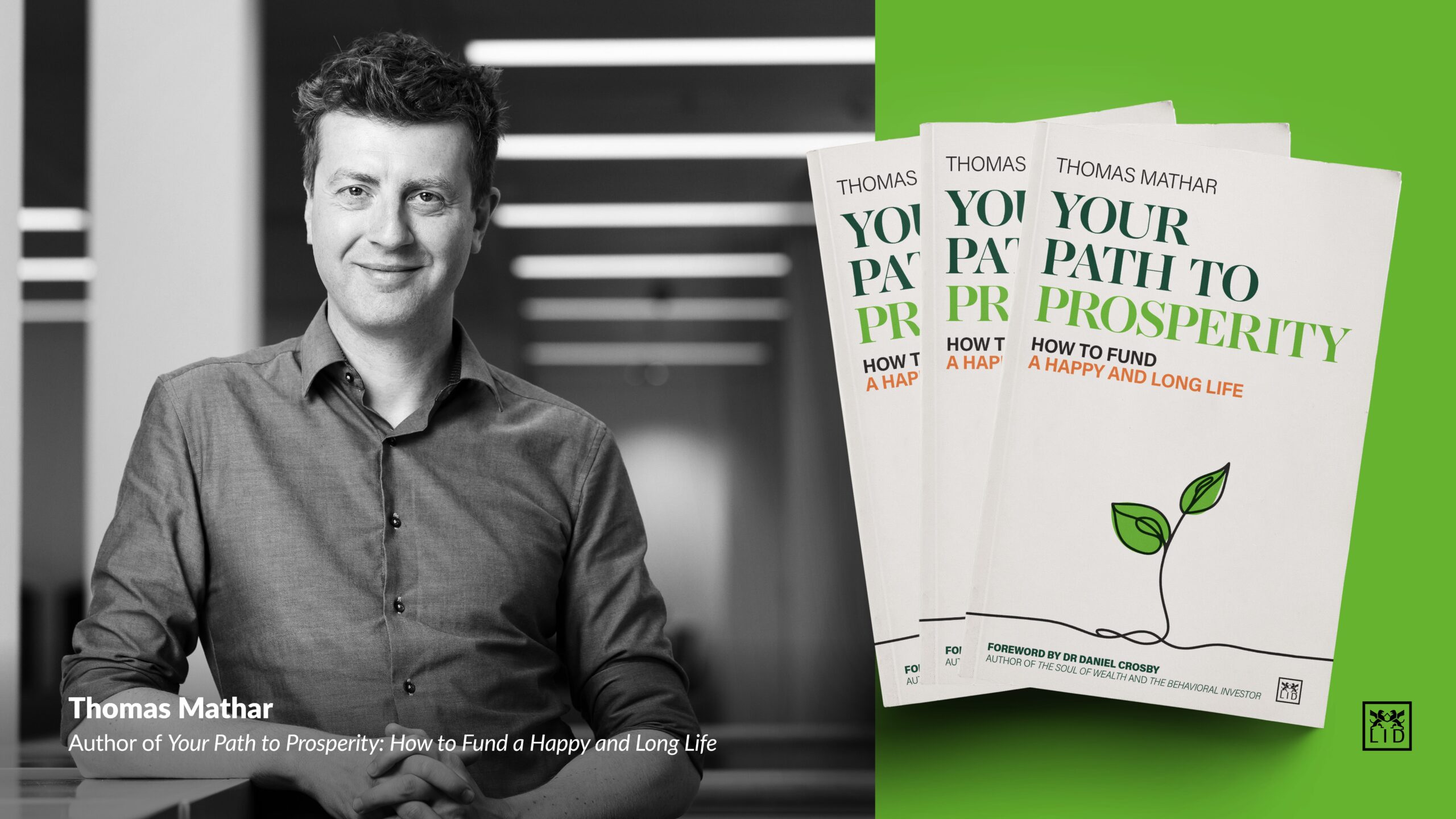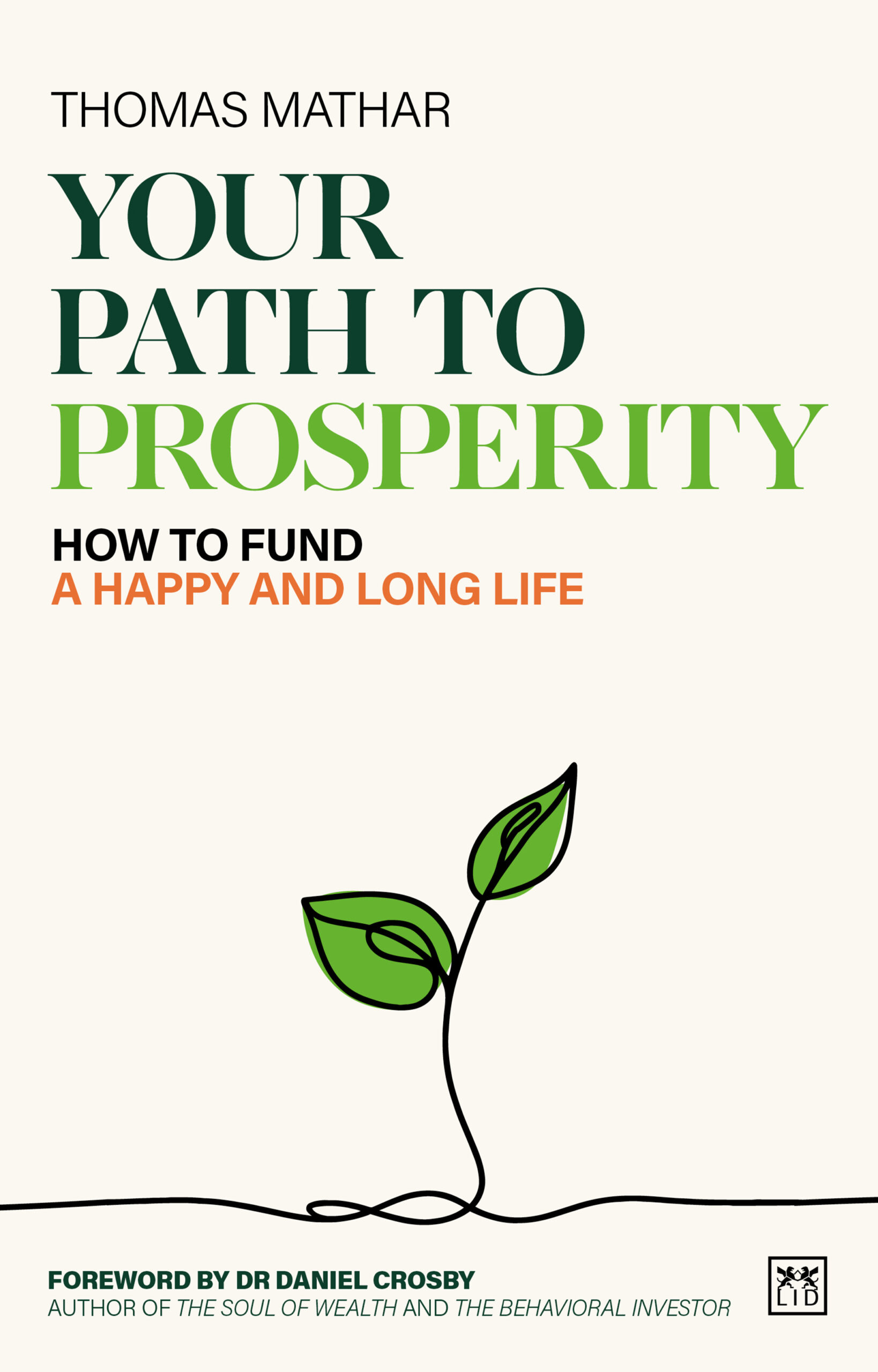|
Why Financial Independence is a Silly Goal with Dr Thomas Mathar
Why Financial Independence is a Silly Goal

By guest contributor Dr Thomas Mathar
Imagine you’ve got a friend. Let’s call her Sarah. Sarah is extremely introverted. She avoids parties, loves reading alone, and could probably do without human interaction for weeks. Now, imagine you give her some life advice: “Sarah, you should aim for complete social independence. You know, cut off all your ties, become fully self-sufficient.”
Silly, right?
What would that even mean? No relationships? No conversation? Grow your own food, stitch your own clothes, fill your own cavities?
That’s what the dream of financial independence sounds like to me. Silly.
Social independence is not possible because no one is ever truly independent. You didn’t build the chair you’re sitting on. You didn’t grow the coffee beans in your cup. Even the axe you’d hypothetically use to chop your off-grid firewood was made by someone else. We live in a web of mutual reliance. Financial independence is equally unrealistic!
The popular advice to aim for financial independence – often paired with catchy acronyms like FIRE (Financial Independence, Retire Early) – is based on a fantasy. And it’s a persistent one. Scroll through social media and you’ll see finfluencers hawking silver bullets: passive income through property! Bitcoin riches! Stock market hacks! Gold bars buried in your garden!
The point is. No one is “independent” of money. We all need it. Not just once, but continually. And not just because we like dinner and shelter, but because we live longer than ever. We live multistage lives, an idea I pick up from psychologist Lynda Gratton and economist Andrew Scott. And an idea I explore extensively in my book “Your Path to Prosperity – How to fund a happy long life”. We don’t just get educated, work, and retire. We train, retrain, take sabbaticals, raise children, care for parents, start businesses, start over. In a life of 90, 100, 105 years, you don’t “retire early” – you transition frequently.
I understand of course where this yearning for independence comes from. Life feels exhausting. There are trade-offs everywhere. Do I stay in my dull but safe job or retrain and risk it all? Do I prioritise my kids or save harder for retirement? Do I care for ageing parents or double down on career progression? In a perfect world, we’d opt out of all these decisions – and that’s what financial independence seems to promise.
But it’s a false promise. Sure, we want more control, more breathing room, more agency. But financial independence, as a goal, doesn’t deliver that. Not really. Because even if you reach the holy grail of never needing to work again, your life is still filled with needs. You still depend on functioning markets, service providers, healthcare systems, and (oh yes!) functioning relationships.
We’re used to thinking in binaries. Dependent vs. independent. Poor vs. rich. Miserable employee vs. blissfully retired. But life’s not binary. It’s nuanced, messy, overlapping. And so should be our financial goals.
I’m of course not advocating for financial dependence. I’m trying to think non-binarily. I’m proposing a better, more grounded alternative: financial wellbeing.
It’s not about escaping the system. It’s about playing the game well. It’s about finding a rhythm – a flow, if you will. Hence, rather than FIRE, I advocate for FLOW: Financial Lives Optimised for Wellbeing.
FLOW asks better questions. Not “how can I retire at 40?” but “how can I make today worth living while preparing for tomorrow?” It’s not about hoarding money. It’s about using it, consciously, to enable a life aligned with your values, talents, and needs. FLOW recognises that your life will evolve, and so should your financial strategy.
In my book, I break down the ingredients of financial wellbeing: the practical, psychological, and emotional foundations of a healthy money life.
Here’s the recipe:
On the money-side, we need this:
- A stable income – because consistent earnings reduce stress, fund experiences, and provide a sense of agency.
- Liquidity – not just an emergency fund, but also a transition fund to support those inevitable life pivots.
- Savings for later life – retirement might look different now, but we’ll still need resources when we slow down.
- Healthy debt management – distinguishing between ‘good’ debt (investments in education or property) and ‘bad’ debt (those impulse buys that taste great in the moment and rot later).
But beyond the money, the recipe also includes this:
- A mindful money mindset – habits, emotions, and beliefs shape our decisions more than spreadsheets ever will.
- Knowledge of what makes you happy – the things, activities, experiences that give you a sense of purpose and pleasure.
- Connection to your future self – planning only works if it’s anchored in who you genuinely want to become.
- Balance – embracing both the true self (what you deeply value) and the false self (the roles society requires you to play), so that your life is coherent but still pays the bills.
This isn’t fluffy theory. It’s how people actually thrive in long, complex lives.
Take Oliver, one of my case studies in the book. With a savings rate of 70%, he was a hardcore frugalist aiming to retire by 40. But then he became a father. He could have kept chasing his independence. Instead, he chose presence. Time with his daughter became more important than early retirement. Was he “less successful” for it?
I’d argue he made the richer choice.
In the end, money isn’t the enemy. But worshipping it is. Trying to dominate it, outsmart it, outrun it – that’s where we go wrong.
So let’s ditch the dream of financial independence. It’s a lonely, unrealistic, and ultimately silly goal. Instead, let’s aim for something better: financial wellbeing. Money that serves life – not life that serves money.
ABOUT THE AUTHOR
Suggested Reading
 Your Path to Prosperity unpacks why money choices are so overwhelming. And why we’re wired to struggle with them. What’s more, the book offers a way forward. It reminds us that money is essential. But the real asset is self-knowledge: understanding your money-mindset, what makes you happy, how you deal with uncertainty, and connect with our future selves.
Your Path to Prosperity unpacks why money choices are so overwhelming. And why we’re wired to struggle with them. What’s more, the book offers a way forward. It reminds us that money is essential. But the real asset is self-knowledge: understanding your money-mindset, what makes you happy, how you deal with uncertainty, and connect with our future selves.

 Dr Thomas Mathar (Dr Tom for short) is a researcher, author, podcaster and speaker who helps shift the way we think about money. He’s the Head of Money Mindshift at Aegon UK, a long-term savings provider, and works at the intersection of financial wellbeing, behavioural science and longevity education. He holds a PhD in social anthropology from Humboldt University in Berlin and lives in Edinburgh with his wife and children.
Dr Thomas Mathar (Dr Tom for short) is a researcher, author, podcaster and speaker who helps shift the way we think about money. He’s the Head of Money Mindshift at Aegon UK, a long-term savings provider, and works at the intersection of financial wellbeing, behavioural science and longevity education. He holds a PhD in social anthropology from Humboldt University in Berlin and lives in Edinburgh with his wife and children.